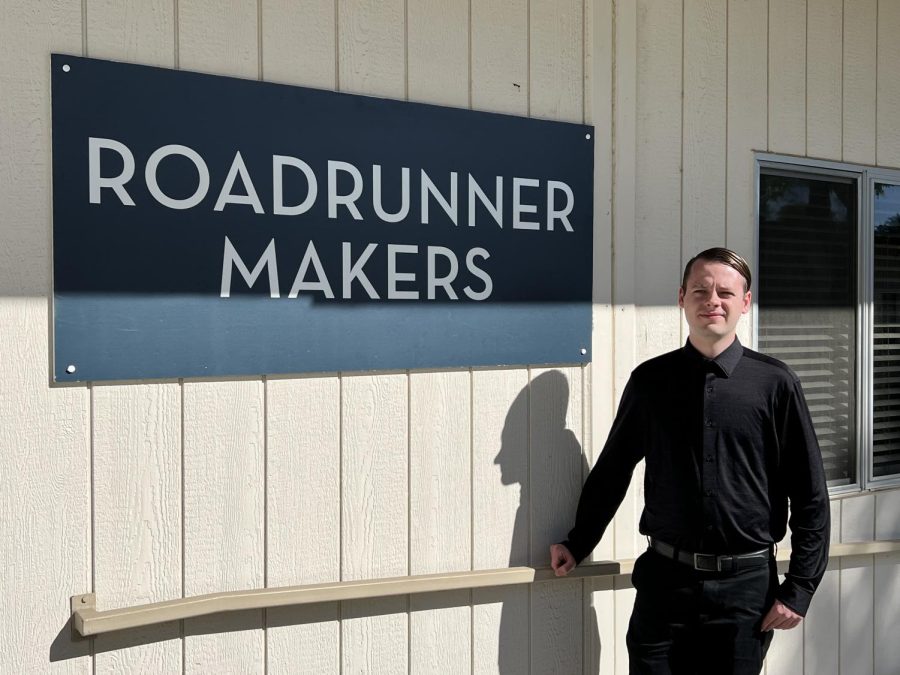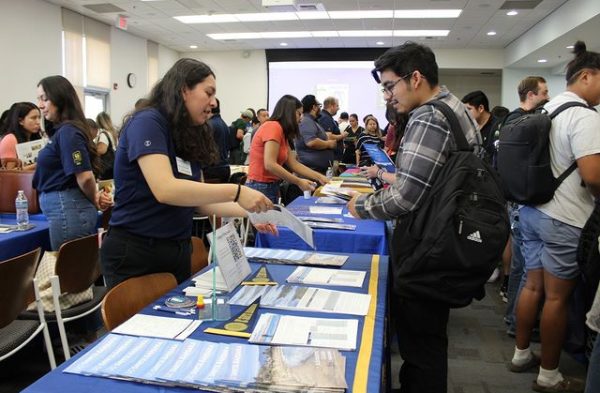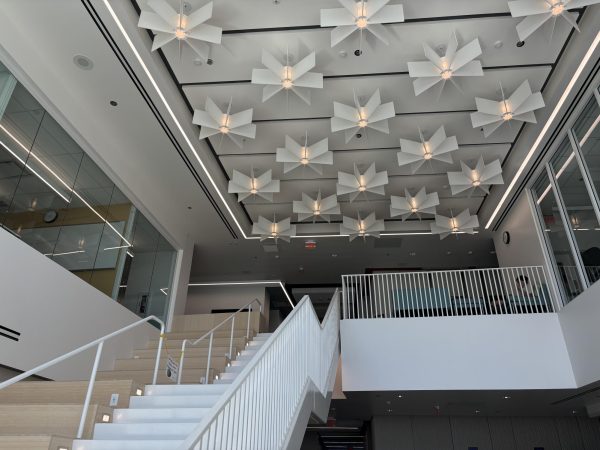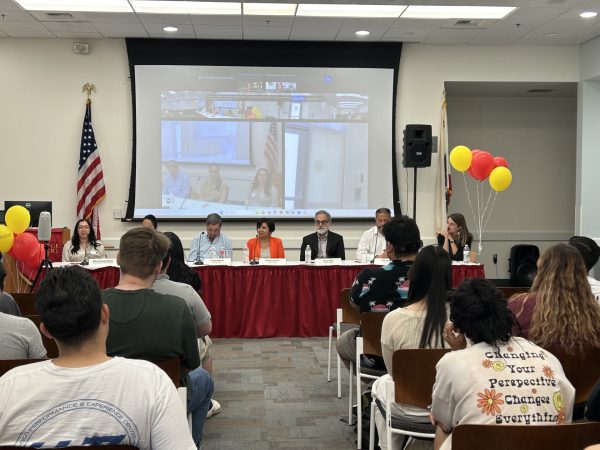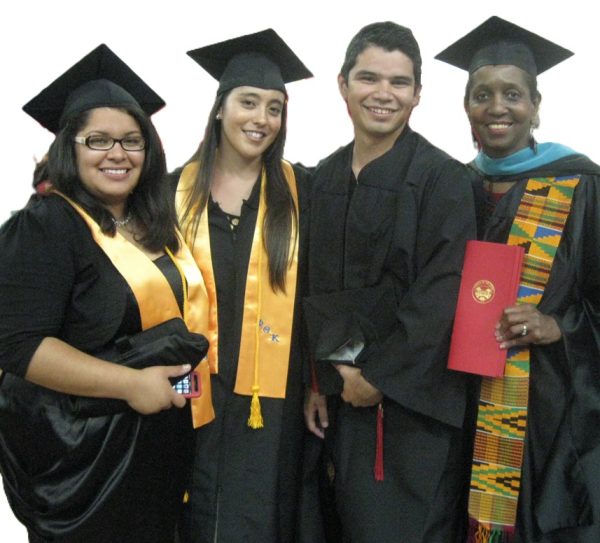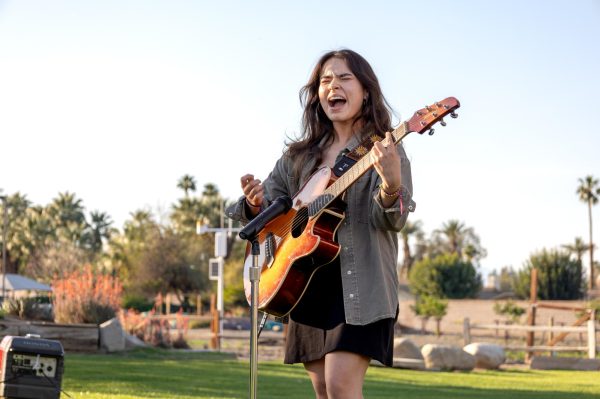The makerspace club teaches students the art of 3-D printing
It started with a 3D printing Club
Alexander James Ivy is the president of the Roadrunner Makers — the newly created club for makerspace. When Ivy was 15 years old, his fascination with 3-D printing caught his interest. He heard about 3-D printing at the college when he started his studies as a business major at COD. Ivy connected with Jonathan Gorges, who is the instructional computer support specialist and the person to go to when it comes to 3-D printing. Third on board was Kinsington N. Peterson, vice president of the club. She was fascinated by the possibility of creating art with 3-D printers. Peterson says, “Everyone should be able to share their voice through art, even with more unconventional art forms like 3D printing or laser engraving.”
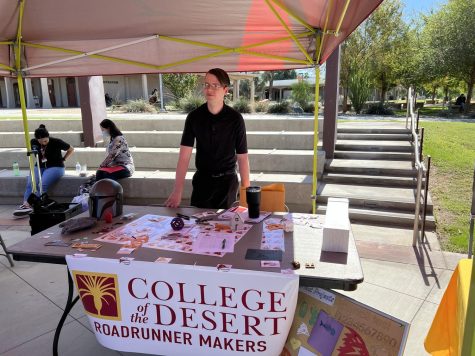
“When I met Jonathan, he explained how everybody could get into the old club and learn how to use a 3-D printer,” Ivy said. Gorges told him how they printed 3-D study guides for visually impaired students and the models they printed for different classes, like skulls of humans and apes for anthropology classes. “We thought it’d be cool if we got that back up and running again.” Gorges explains that the new club decided to change the name of the club into Roadrunner Makers in support of the makerspace that is also called Roadrunner Makers.
Both Peterson and Ivy state that it was easy to bring back the club. All they needed was filled out forms from the Office of Student Life and a minimum of 10 students who would sign up for the club. Ivy asked some college students that he knew and accumulated around 35 people who were interested in the makerspace. The students come from different backgrounds. Gorges says, “We have a few members in the club that are art-focused. We have some members of the club who are engineering MENSA students. They will use it for prototyping. Other people participating in the club are interested in making stickers, t-shirts and buttons.” Whatever they’re interested in, they can be creative at the Roadrunner Makers. Look for yourself on the club’s Instagram.
Gorges said more about the history of the club. “Before the pandemic, there was the club called ‘3-D Pit,’ which stood for 3-D print-it. The first club was founded in March 2017.” The club started out with a Pulse 3-D printer. Later the college purchased an MakerBot 3-D printer. The MakerBot is a more advanced printer that allows larger prints and has other advanced features. Originally, COD started 3D printing in DSPS which is disabled students’ programs and services.
Gorges 3-D printed educational models for blind and visually impaired students. The students thought it was really fun. They got together and started a club. The printers were still used to 3-D print educational models, but the students in the club could print their own projects. The first club was small, and members were mostly students of the DSPS department. The president was Diego Garibay, club members were Adam Shimp, Melissa Roe, Jack Swink, Katie Bias, Ashley Garrett and Carl Schoemig. Gorges remembers, “Together we attended a few events with the club, there were field trips, and we purchased a 3-D printer for the club. One highlight was the 3-D printed delivery robot which debuted at Blaze Pizza for a fundraiser and delivered pizza.
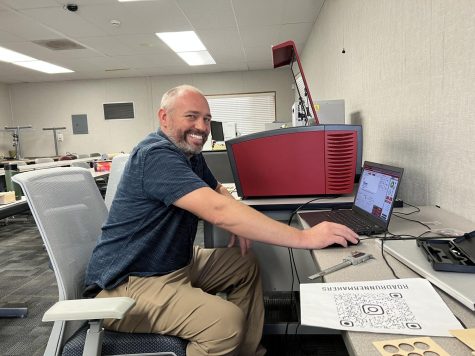
Today, the students who sign up for the club can use a broader variety of machines. Gorges is proud when he lists the equipment students can use in the makerspace, “We have an Ultri Maker S3 printer, a MakerBot Replicator Plus, a Universal Laser Systems laser cutter/engraver, and a Roland BN20 vinyl cutter printer. Then we have the Roland MDX 50 CNCmachine, which is a 3-D mill and a resin-based 3-D printer, the brother PE 800. There is an embroidery machine and a Singer 9960 sewing machine that is also part of the makerspace. That is quite a variety of different machines that students can use.” Before students start at the advanced machines, they will be trained at a Cricut, the home version of a makerspace.
Students also need to attend training before they can use the makerspace. They will gain access to a Canvas shell to learn about the different machines. There will be quizzes that test their knowledge. After they pass the first tests, they can start working with the cricut. Working with that machine will give them first experiences. They can create small, fun projects. The Cricut cuts leather, all cardboard, wood, vinyl and fabric. Students can customize coffee mugs and print images on t-shirts. When they proceed with the canvas modules, they learn about the other machines in the makerspace and will be allowed to use them after passing the quizzes
Officials at COD were always interested in creating a makerspace. During the pandemic, COD staff and the I.T. department took the existing 3-D printers home. The makerspace community and the California Community Colleges provided personal protection equipment at no cost for all the hospitals in need. They 3-D printed face shields for local Eisenhower hospitals and other medical facilities because of the shortage of equipment.
Beth Allan-Bentley, the associate professor for business and the faculty lead of the makerspace project, is happy for COD’s support of the makerspace. Allan-Bentley has worked together with the college, Gorges and Frederic Raab, the two advisors for the makerspace, for over five years to have a makerspace at COD. They are excited to have a soft opening of Roadrunner Makers on Nov. 14. Advisors will be at the makerspace on Monday and Wednesday from 10 a.m. to 1 p.m. and from 5 to 7 p.m. All students, faculty and staff will be invited to discover the opportunities at the makerspace Roadrunner Makers.

Carl is an international student from Germany at College of the Desert, receiving his Associates degree in Mass Communication in Fall 2022. He is a returning...

